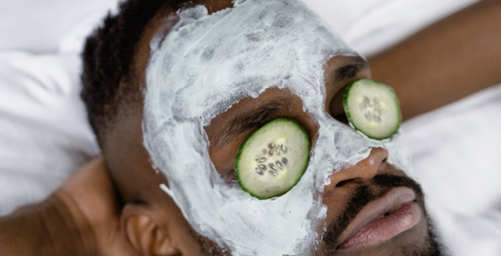Sensitive Skin: What Ingredients to Reach for and Avoid

Approximately 50% of women and 40% of men report having sensitive skin. Sensitive skin is a term that is generally used to describe skin with reduced tolerance to the application of cosmetics, personal care products and environmental irritants.
Most complaints of sensitive skin relate to the face. They include tingling, itching, burning, pricking, stinging, tightness, and even painful sensations in the skin. Often, sensitive skin appears red and dry.
If you’re affected by sensitive skin, the good news is you can usually keep your symptoms under control with a few simple changes to your skin care routine such as:
-
Avoid Fragrances: While they give a pleasant scent to your favorite skincare products, fragrances are also the leading cause of allergic contact dermatitis. Possible allergic reactions include hives, itchy skin, rashes, flaking or peeling skin, and even eye irritation. So, when choosing skincare products, it’s a good idea to read the label first. Some of the most common irritating allergens found in fragrance mixes include balsam of Peru, cinnamates, menthol, and cinnamic aldehyde to name a few. If you see them, stay away from them. Some of the kinder skincare products are rinse-off cleansers because of the shorter amount of contact time they spend on your skin versus leave-on creams.
To Be Safe: Opt for fragrance-free products instead or those with even limited fragrance. They’re less likely to irritate sensitive skin.
-
Avoid Soaps: Soaps made of lye and fat often have a high alkaline pH which can strip your skin’s natural oils and acid mantle – a thin hydro-lipid layer that protects skin from microbes and maintains your skin’s moisture barrier. This can result in dryness, redness, itching and inflammation with the potential to worsen sensitive skin conditions like eczema and rosacea.
To Be Safe: Opt for an ingredient called syndet which is short for synthetic cleansers — often described as “beauty or cleansing bars”. They’ve proved to be gentler and less irritating to skin than soap-based formulas because they combine mild cleansing with moisturization benefits.
-
Avoid Sulfates: Another common source of skin irritation are sulfates commonly known as sodium lauryl sulfate (SLS) or sodium laureth sulfate (SLES). Both are cleansing agents found in many personal care products like shampoos, makeup removers, and face washes. People love them for the sudsy lather and their ability to lift dirt and oil from skin, but they can also strip skin of moisture, resulting in a dry and damaged skin. Sodium lauryl sulfate in particular is associated with a higher incidence of contact allergy as it binds surface proteins on skin more readily than sodium laureth sulfate.
To Be Safe: Opt for sulfate-free products or products with a smaller concentration of sulfate product ingredients in the. The higher the concentration of SLS in a product, the greater the potential for irritation.
-
Avoid Denatured Alcohol: There are several types of alcohol found in many skincare products, such as denatured and fatty alcohol, that can aggravate sensitive skin. Denatured alcohols like isopropyl alcohol and ethyl alcohol are used in skincare as a solvent to dissolve and mix other ingredients. They also help a product’s ingredients absorb more deeply into the skin and are good degreasing agents. You’ll find them in a lot of toners and cleansers. If you have sensitive skin, stay away from them. They can strip skin of natural oils, damage skin barriers and cause dry, dehydrated skin.
To Be Safe: Opt for less irritating products that contain other fatty alcohols like stearyl, cetyl and cetearyl alcohol. They act as emulsifier helping to blend liquid and lipids together in creams and lotions. Plus, they’re considered emollients which help retain moisture in the skin.
-
Avoid Lanolin : Lanolin is a sheep wool-derived emollient that is very moisturizing and used in skincare to soothe dry and dehydrated skin. However, lanolin can be a sensitizing agent in skincare especially for those with allergies to wool. People with sensitive skin or eczema- prone skin should be cautious. Lanolin can cause allergic reactions.
To Be Safe : Opt for moisturizing ingredients like niacinamide and ceramide based. Not only do they help replenish your skin’s moisture barrier, niacinamide has anti-inflammatory properties which are soothing to inflamed skin as well.
While these tips will bring some relief to those with sensitive skin, as a Board-Certified Dermatologist, I also advise you to consult your local dermatologist on additional ingredients to reach for, or avoid, for your skin. Click HERE to book an appointment near you.


